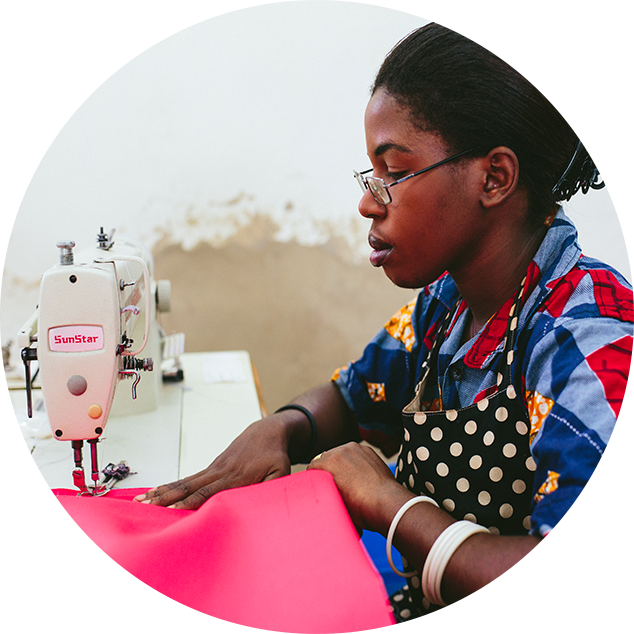Lorem ipsum dolor sit amet, consectetur adipiscing elit. Cras sollicitudin, tellus vitae condimentum egestas, libero dolor auctor tellus, eu consectetur neque.
Her Story
Claudine Umuhoza
Artisan
In the past, Claudine had escaped an abusive marriage. She took her two children and moved in with her mother in Masoro. There, she occupied one of the lowest rungs in the community: she hired herself out to work other families’ land, earning about 50 cents per day. Every once in a while, she landed a brick-carrying job at a construction site. The work was back-breaking but the pay was a little higher.
When Abahizi Rwanda first publicized job opportunities in the new factory, Claudine did not hear the news. The second time, however, she came as soon as she heard. Yet two factors conspired against her: she had no skills and no phone. But Claudine had a sister with a phone so she provided the number. Still, she had little hope because the demand for Abahizi Rwanda jobs was so high. But five months later her sister’s phone rang: there was an opening for a cleaner. From there, Claudine climbed the ladder: within a year she had taken and passed the sewing test.
Claudine describes her grinding poverty before Abahizi Rwanda as fact but not complaint. The whole family was often hungry, her children in rags and the house was crumbling. Now, the basics – food, clothing, school fees – are covered by her reliable salary. Her house is in good repair and she is proud to call it home. One chicken, bought with one of her first paychecks, has become 28.
Claudine has a vision for the future beyond Abahizi Rwanda. She is saving for a future with more chickens, more land, and a cow. She told us that she wants to look out her window and see what is hers, not somebody else’s. A catchy ring-tone came out of Claudine’s pocket and she laughed. “I have a phone now,” she said. “A really nice one.”



